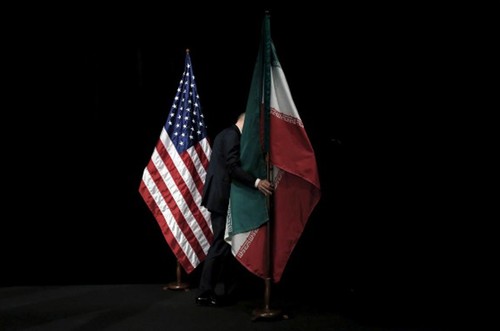 National flags of Iran and the US in the nuclear talks in 2015. (Photo: Reuters) National flags of Iran and the US in the nuclear talks in 2015. (Photo: Reuters)
|
US Secretary of State Mike Pompeo on Wednesday submitted to the UN Security Council in New York a complaint about Iran’s non-compliance with the 2015 nuclear deal, even though the US quit the accord in 2018.
The 2015 agreement between Iran and a group that included Russia, China, Germany, Britain, France, and the US, in return for sanctions relief, banned the export to Iran of technology related to the delivery of nuclear weapons, banned the sale of conventional weapons to Iran, and banned Iran from exporting weapons.
US moves rejected by allies
Because the bans will expire on October 18, the US recently proposed a UNSC resolution to indefinitely extend them. But of the other Security Council members, only the Dominican Republic voted for the resolution. Russia and China voted against it, while the remaining 11 members abstained. Before the vote, President Trump demanded that the UN restore all its sanctions on Iran through something called the “snapback mechanism”, which would effectively end the nuclear deal.
Analysts say that although the US withdrew from the deal in 2018, it still has a legal basis for extending the bans on Iran, but its moves have caused a rift with its European allies, who say that the US doesn’t necessarily get to call all the shots for the international community.
An end to the nuclear deal?
The US wants to prevent Iran from purchasing advanced weaponry after October 18, but its efforts have only intensified the conflict between Washington and Tehran. Calling the US’s rebuff by the UN Security Council a political victory for Iran and a political defeat for the US, Tehran has stepped up its provocations. Defying US demands that it halt its missile program, Iran on Friday unveiled a new cruise missile and a surface-to-ground ballistic missile with a range of 1,400 km. President Hassan Rouhani says Iran's defensive power will benefit its allies.
Analysts say the US’s maneuvering could kill the nuclear deal, alienating its allies, who have continued to support the JCPOA.
Russian President Vladimir Putin has called for a conference to ease tensions in the Gulf, with the expiration of the arms embargo just two months away.